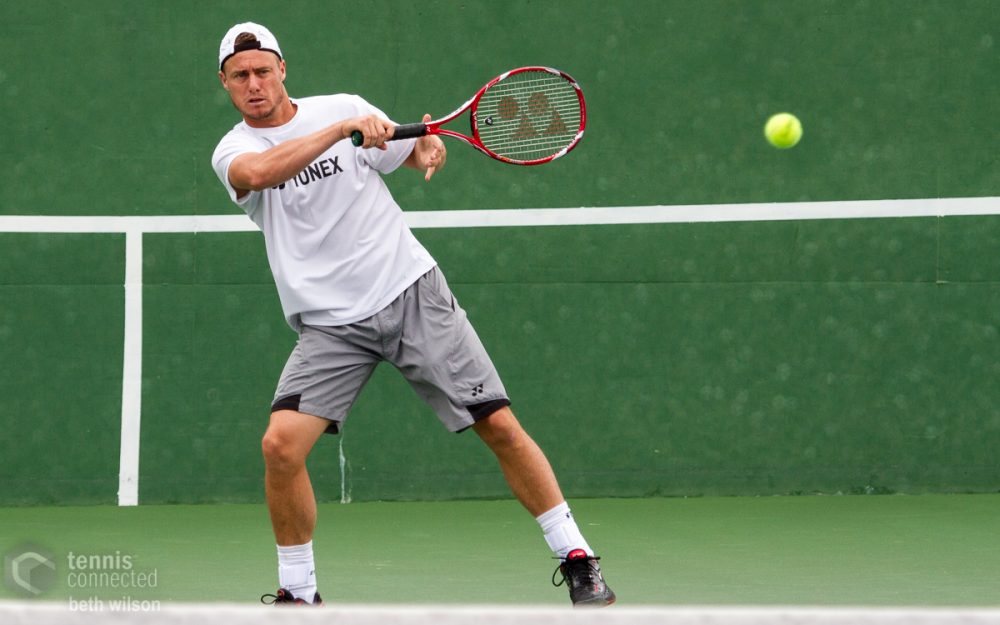Welcome to Tennis Elbow, the column that looks back on the week that was in the world of tennis. This week, Charles Blouin-Gascon discusses the ongoing tug of war between the powers that be in men’s tennis.
Men’s tennis might be undergoing a change in power.
At least that’s what recent headlines scattered throughout would have us say. Look, here’s one from the folks from Slate France: “Professional tennis is on the brink of a precipice.”
Quite the gloomy headline definitely, and here’s let’s insist that the article is actually about men’s tennis and it is annoying that “professional tennis” must always mean the world of men athletes, but anyway that’s a different combat. So yes quite the gloomy headline. You can read the article in its entirety if you understand French, but know that the lesson here is that the International Tennis Federation is losing ground in the battle for supremacy in world tennis.
The history of men’s tennis is one of push and pull between the ITF, responsible for the prosperity of the sport as a whole across the world, and the now ATP World Tour, which overlooks the interests of of men athletes—and tournaments too, but hold that thought.
The folks from Slate France will have us say that the ITF, in other words, has lost a fair number of feathers recently. The organization’s chief figurehead, the Davis Cup, could very well be about to be destroyed, moving away from the year-round tournament to a new proposal that would be at the forefront of the tennis universe for a single week. Quite telling: this proposal comes from the ITF’s own volition.
Whether the Davis Cup is a Phoenix that will be destroyed in order to be better rebuilt remains to be seen. Novak Djokovic and Rafael Nadal both offered support for this new initiative, Andy Roddick did the same in his role as tennis commentator. Meanwhile, Roger Federer didn’t exactly say that it wasn’t a bad idea, which for him is about as controversial as we will see. His involvement with the Rod Laver Cup, a sort of pseudo Davis Cup with at least a feel of overdue change going for it, speaks volumes anyway.
This new proposal also received plenty of negative feedback, a lot from players who themselves have experienced great success at the Davis Cup in the past, or from players that are from countries who traditionally have performed well like France. Australian legend Lleyton Hewitt, notably, penned an editorial to The Australian. Look, here it is.
The #DavisCup is one of the best competitions in world sport with 117 years of history & tradition. There is no greater honour! pic.twitter.com/fMMOU79qjG
— Lleyton Hewitt (@lleytonhewitt) March 23, 2018
Hewitt asks how can a billionaire come along and buy into one of the sport’s biggest events, most important events? Well, it’s pretty simple: the Davis Cup has been suffering. Because sometimes, tradition isn’t enough.
Let’s take just one tiny example: you might have recalled that last year in this space we decided to write Davis Cup previews. Well, not that this means anything really in the grand scheme of things, but we at Tennis Connected decided not to write such previews anymore: they’re just not as popular as other instalments of this column and, well, we need clicks just like anyone else.
But this fight over the future of the Davis Cup isn’t the be-all, end-all.
In tennis as in life, money tends to go a long way toward acquiring and possessing power. This is what the current crop of players is fighting about, starting at this year’s Australian Open when they made the seemingly reasonable request for a bigger piece of the financial pie from the ATP World Tour and the tournaments, and when they forced us to envision a possible future with a tennis players’ union.
We’ve already mentioned why players might want to get unionized and how moving from 15 to 28 per cent of tournaments’ overall payout to something more in line with the NBA, where they almost split things 50-50, could help out all players.
Such a shift wouldn’t be perfect, especially if it means that bigger names would grab a bigger portion of that payout increase, but more money is more money and more money should help out every player on Tour.
It could give a bit more power to those who too often have very little.
Follow Charles Blouin-Gascon on Twitter @RealCBG





















